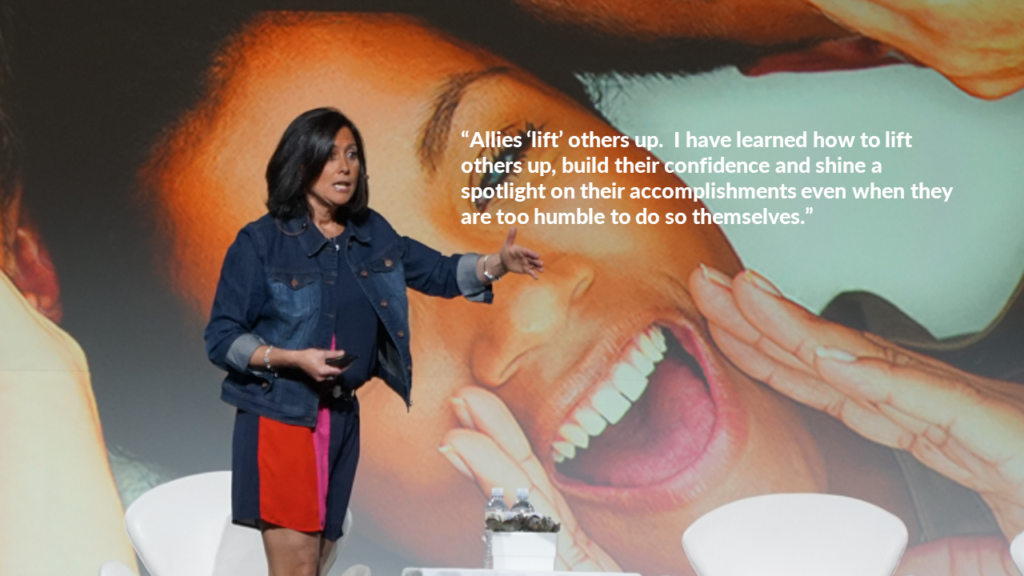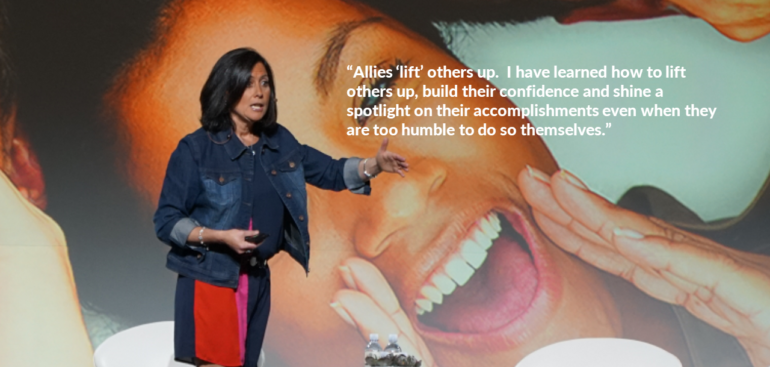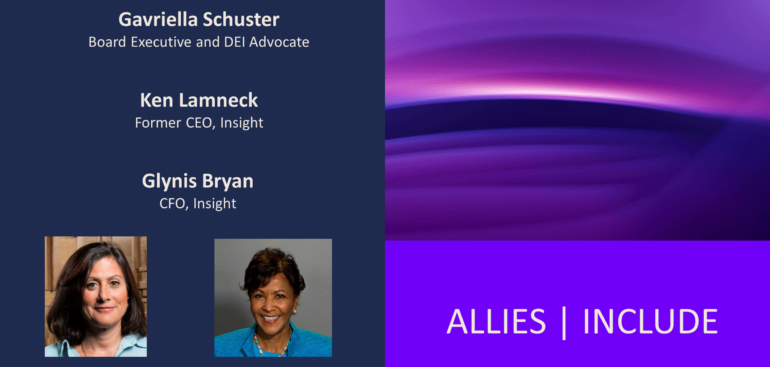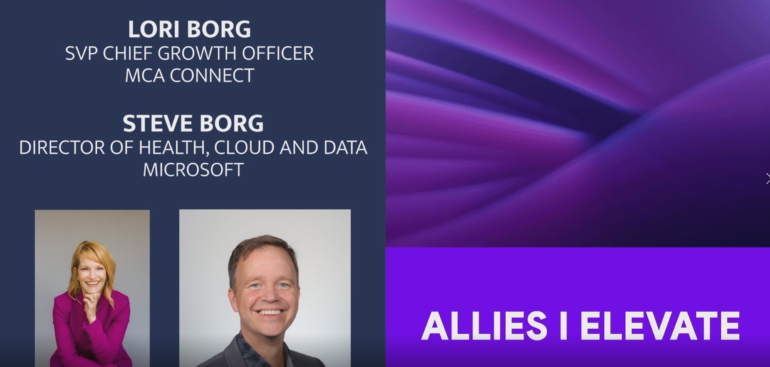
From an early age, women are socialized more often than men to mute their accomplishments, be overly self-critical and avoid self-promotion. This is the phenomena that leads most women to avoid applying for jobs unless they believe they meet over 90% of the qualifications whereas men will typically apply if they meet just 60% of the qualifications and is what holds women back from negotiating for equal pay. This lack of confidence leads many women to leave the technology field and in many cases never even enter it.
Linda Babcock, a professor of economics at Carnegie Mellon University and the author of Women Don’t Ask, has found, in studies of business-school students, that men initiate salary negotiations four times as often as women do, and that when women do negotiate, they ask for 30 percent less money than men do.
As part of my series on ALLIES, I want to share more insight about the second L in ALLIES, “Lift and why that is important to drive for gender equity.
What allies do, is that they focus with intention to lift up the individual. They help the individual to build their own self confidence through encouragement. Frequently point out her talents, strengths and accomplishments. Give her credit for her contributions and make sure she knows that she is valued for her ideas, contributions and impact.
I have learned how to lift others up, build their confidence and shine a spotlight on their accomplishments even when they are too humble to do so themselves. Personally, my confidence has been shaken many times by the “tear down” test that plays an overly prominent role in high tech teams. It is predicated on the belief that great ideas come from “tearing down” someone’s idea and picking it apart. If an idea can withstand the “tear down” test then it must be “good”. This assumption is flawed. Ideas become better when we build upon each other’s ideas and offer alternative points of view to examine from all sides. The effect on the individual who brought forth the idea when faced with the “tear down test” is that it does not just throw question on the credibility of the idea but it can destroy the confidence of the person who brought it forth.
According a study by Dunning and Ehlinger The Confidence Gap – The Atlantic @Katty Kay and @Claire Shipman share that “men overestimate their abilities and women underestimate their abilities. Their performances do not differ in quality.” They also share “Having talent isn’t merely about being competent; confidence is a part of that talent. You have to have it to excel.”
Women are also more likely to be interrupted and misheard than men in meetings. As an ally as a counter measure can find opportunities to encourage a woman. Let her know when she has a good idea, makes a good point, acts in an assertive way. Assure her of the positive impact she has. Not coddling, not rescue behavior but genuine positive feedback.
I would like to introduce you to two people who will share their story with you about the impact of these confidence building actions. My esteemed colleague, Dawn Marie Elder, who is an entrepreneur, technologist, and industry leader. She is currently the General Manager and COO at @SIPPIO leading sales, marketing and channels focused on enabling voice capabilities to increase the value of collaboration solutions allowing partners and carriers to build a healthy recurring revenue practice. Today, Dawn Marie will share her story of allyship and how it has made a difference in her experience and confidence in building her career.
I would also like to introduce you to her ally, Michael Gorriaran a globally experienced technology sector executive with a 30 year career spanning Microsoft, Xerox and now serving as President of Arjuna Solutions, a Behavioral Economics and Artificial Intelligence services provider helping nonprofits expand their impact.
Both of these individuals have led impressive businesses and hold executive roles. But we are going to play Monday morning quarterback and take you back to a time in their history when they were just connecting and the road that was paved by Michael’s intention to become an ally for Dawn Marie.
For more insights on how to become an ally, visit dev.mieche.net/gavriella as we share more stories. And tell us, who are your allies? What have they done to support you?
















